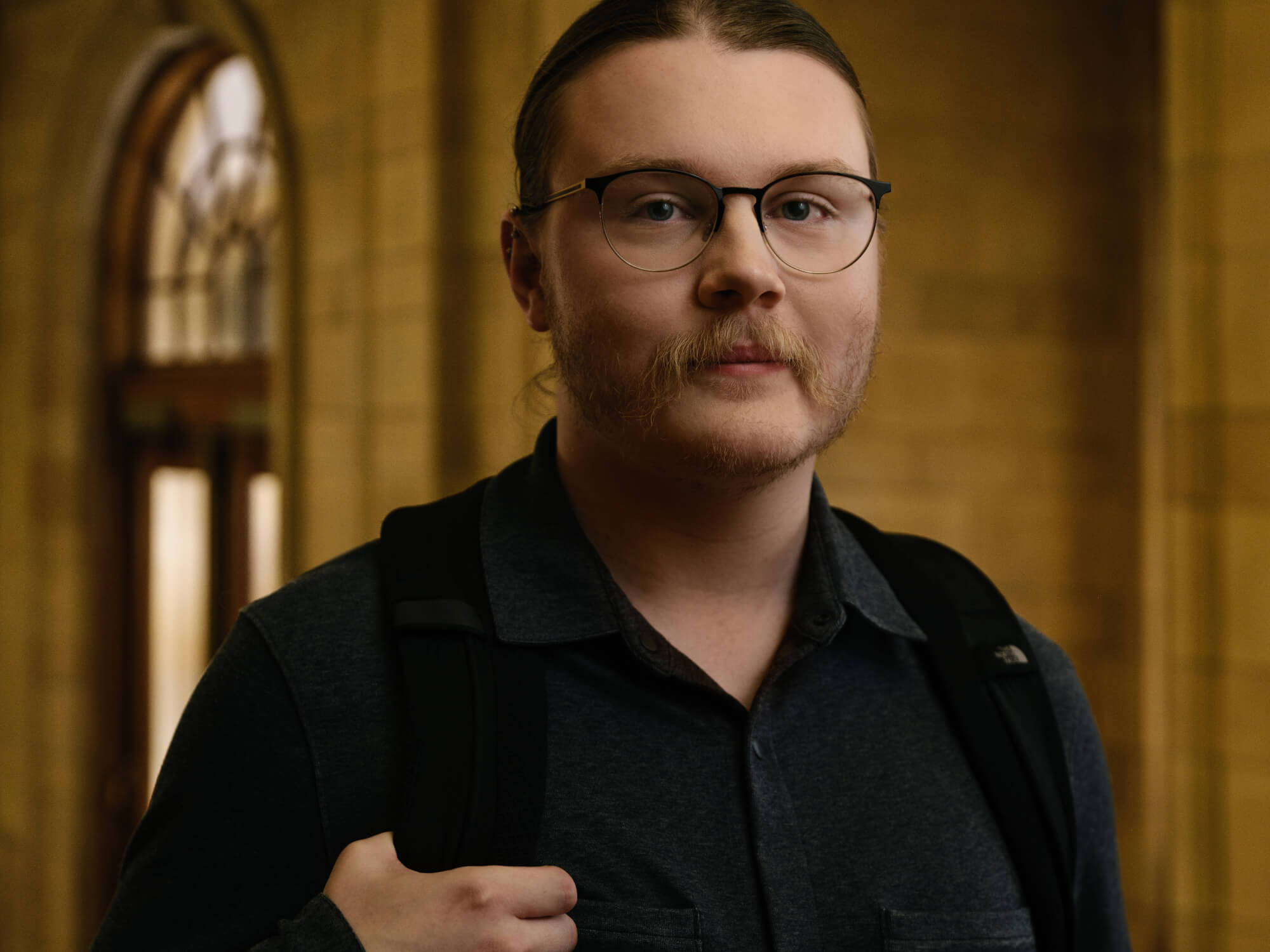Hands-on history
Anna Schmidt - 8 October 2024

Jonathan Grossman
This summer, Jonathan Grossman found himself on a digital treasure hunt, excavating the web for undiscovered data.
He was stationed in the University of Alberta’s Museums as part of the Young Canada Works program, a federal initiative that connects employers with talented students for short-term job opportunities. “My ambition is to work in a museum as a curator,” says Grossman, a fourth-year history student in the Faculty of Arts. “This was a great opportunity to dip my toes into that field and find out how it works.”
And the result? The hands-on work experience confirmed it, he says.
“This is the field I’m interested in.”
Grossman’s experience is common for the thousands of students across the university who engage in hands-on learning and research – many of the opportunities made possible by donors. This direct experience, called experiential learning, can range from internships to research opportunities to travel abroad experiences.
Experiential learning allows students to gain new skills and help them become career-ready. It gives them space to problem solve, innovate and create in a way they can’t in the classroom. And it gives them opportunities to create connections in the community, while also connecting the community back to the U of A.
The donors who support this experience for Grossman went beyond merely shaping a hands-on learning opportunity. Alongside Grossman, they helped preserve history and enrich culture. And through Grossman and his time in the University of Alberta Museums, they have helped to safeguard knowledge for future generations of teaching and research.
The University of Alberta is home to one of the largest networks of academic museums in Canada, including more than 10 million pieces across 30 registered collections. Ranging from art to zoology, these collections are also classrooms where students, researchers and members of the public can connect directly with the pieces.
Donors make the collections possible by supporting their preservation, curation and public displays – all ways to honour their love of art, sciences and learning.
For example, thanks to donor generosity, students are getting these experiences across campus. Students of material culture can take their studies from the screen to real life amid the thousands of items that comprise the Anne Lambert Clothing and Textiles Collection. Aspiring dentists can gain a deeper understanding of their profession’s history by examining early 20th-century tools in the U of A Dentistry Museum Collection, housed in the donor-funded Geoffrey and Robyn Sperber Health Sciences Library.
“Hands-on learning makes what you’re doing real. It takes it from pure theory to actual practice,” says Grossman.
Experiential learning has informed much of Grossman’s undergraduate journey — even before he spent his summer working with museums. For nearly two years, he has volunteered with the Kule Folklore Centre, a permanently endowed institution in the Faculty of Arts that supports the study, collection, sharing, and preservation of Ukrainian culture through archives of cultural items.
“I hear stories from people with Ukrainian backgrounds, and it’s surprising how often there seems to be a connection with my own,” says Grossman, whose ancestors arrived in Alberta during the early waves of Ukrainian immigration. “There’s a kind of comfort in it. It makes me feel part of the community.”
These experiences motivated Grossman to continue learning Ukrainian — a language his grandparents speak, but his parents do not. He received the donor-funded George Romaniuk Memorial Prize to support this linguistic endeavour — a scholarship awarded to students who demonstrate excellence in senior-level Ukrainian coursework. “More than just the money, it was like ‘Hey, you’re doing well. Keep going.’ It was an encouragement,” he says.
Ultimately it was donor generosity — both to museums and scholarships — that fuelled Grossman’s ability to identify his academic interests and goals for life after graduation.
Students have a remarkable will to change the world. They will broaden our horizons, feed the world, improve health outcomes and take on inequity. Join the Shape the Future campaign as we raise $100 million to provide the next generation of U of A change makers with the access, opportunities and spaces that will help them shape an inspiring future for all.
- See how Grossman and others will make a difference in the Shape the Future video .
- More Stories of Impact: